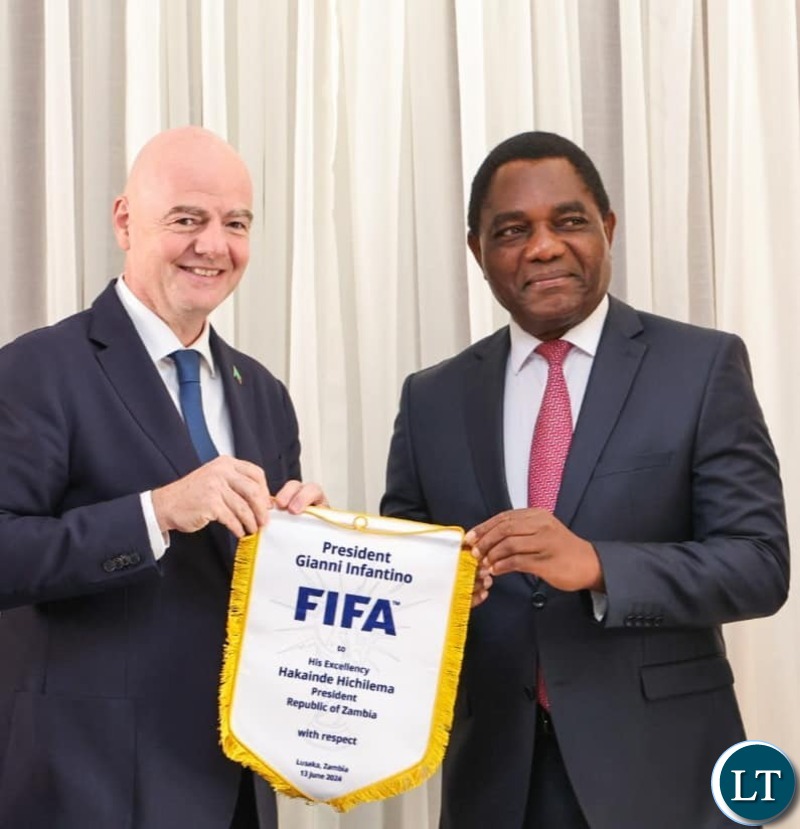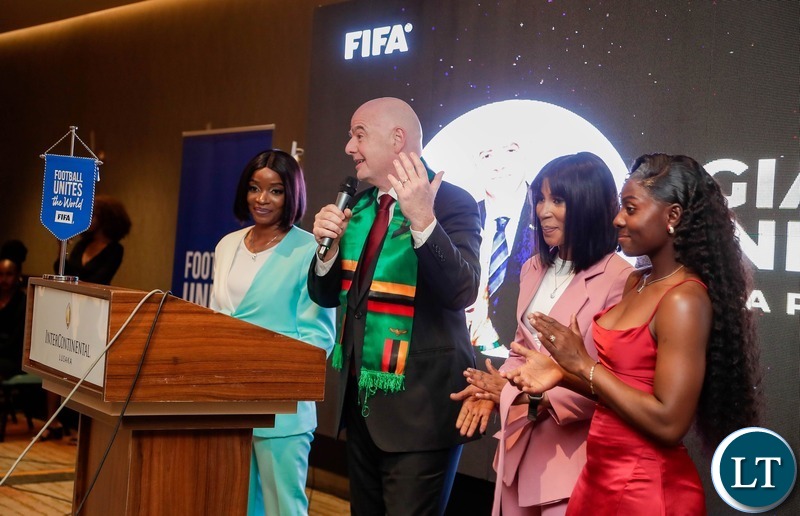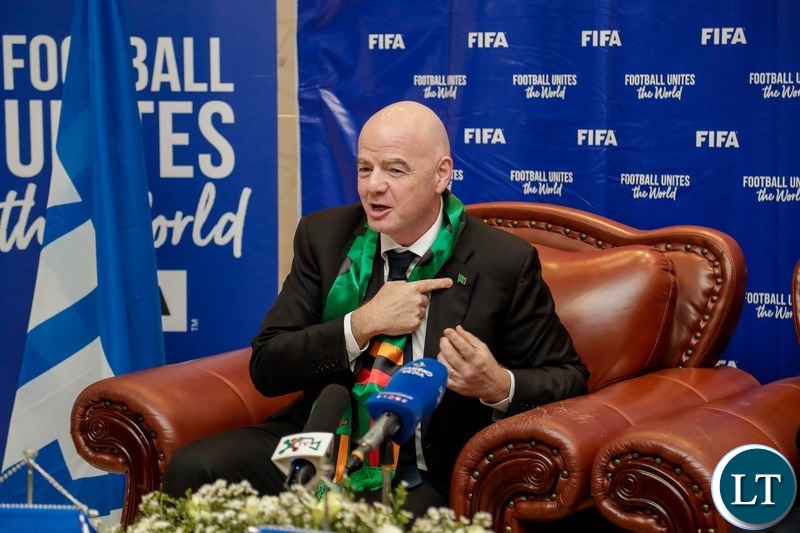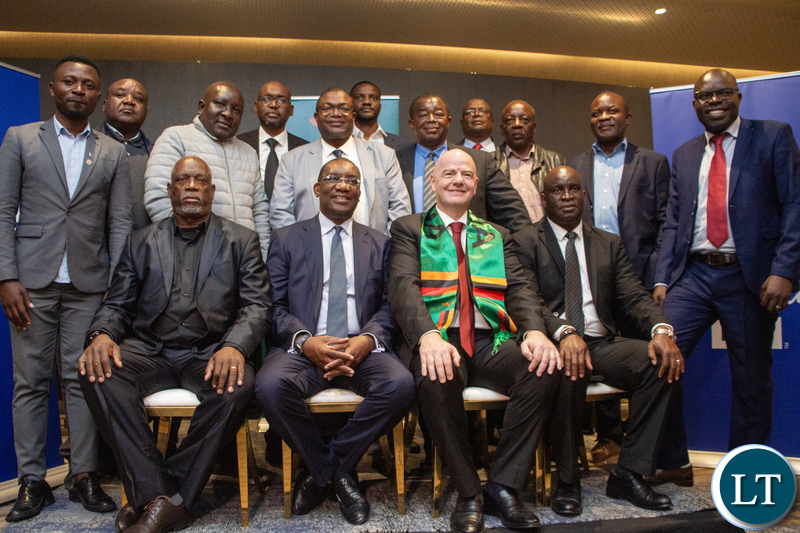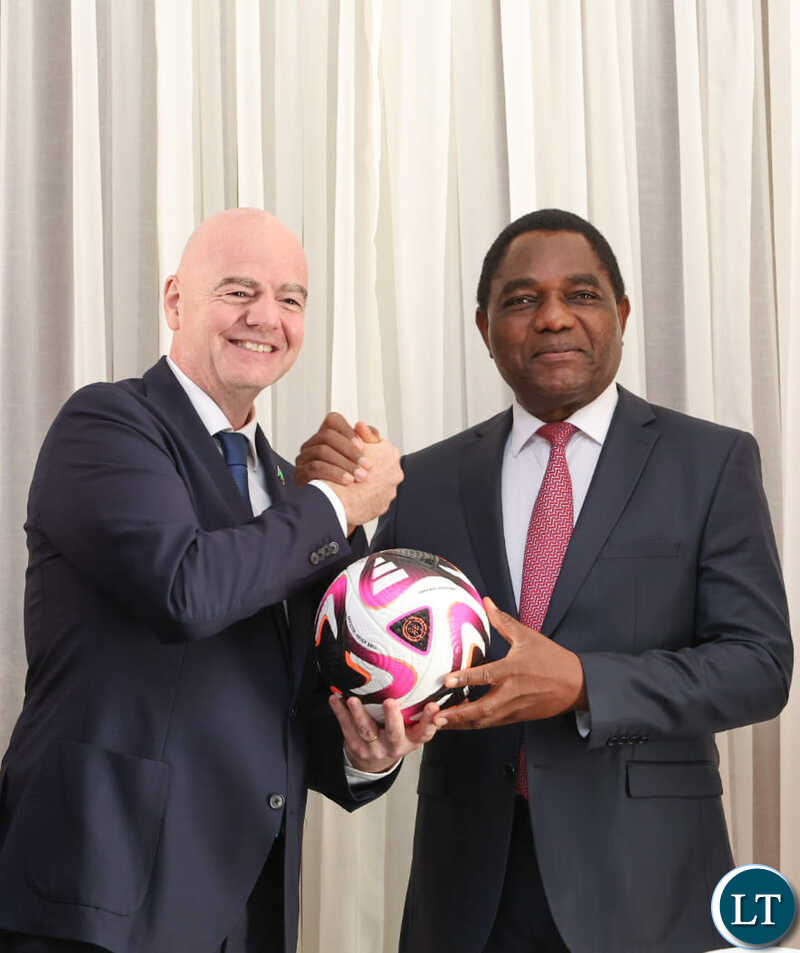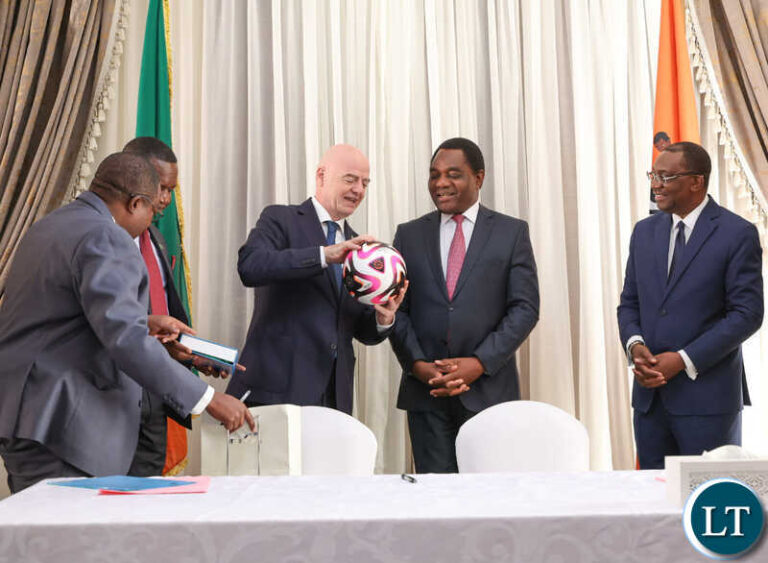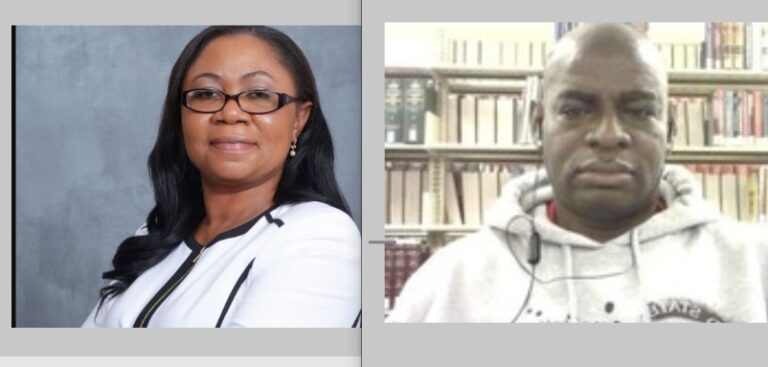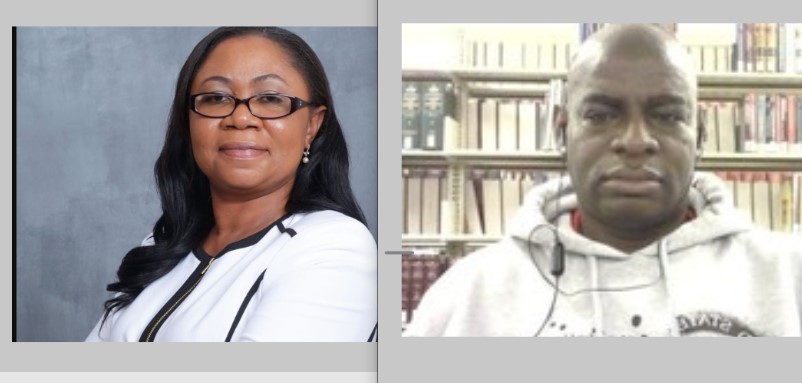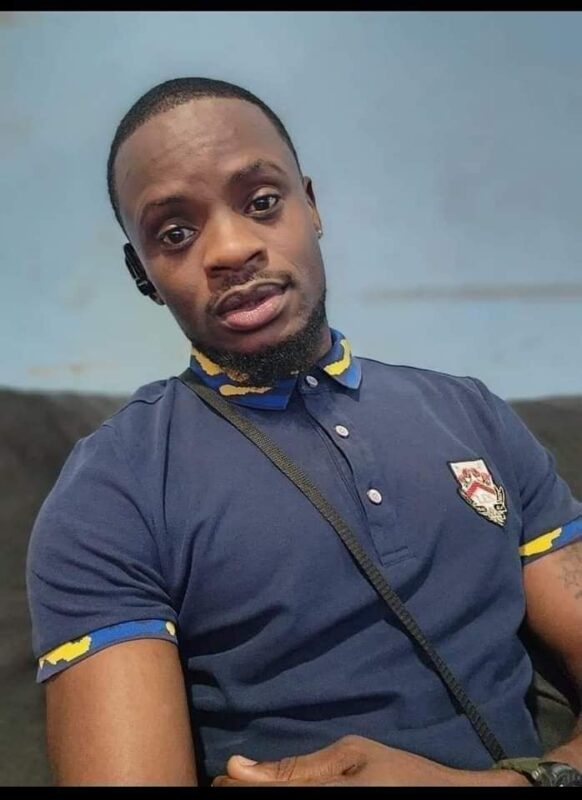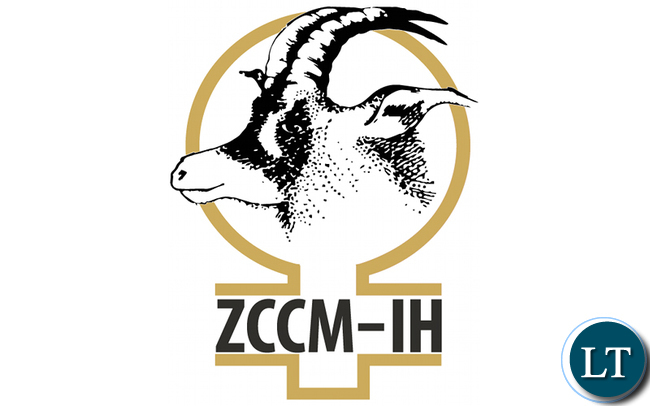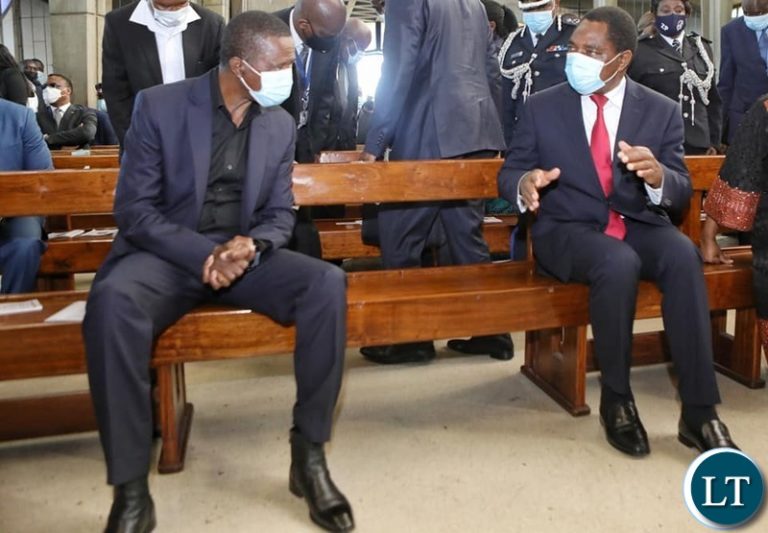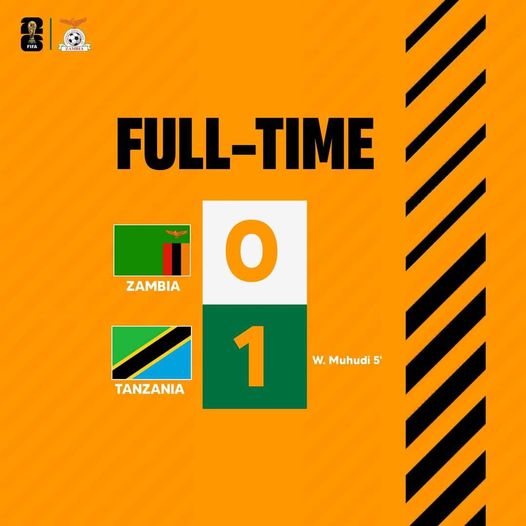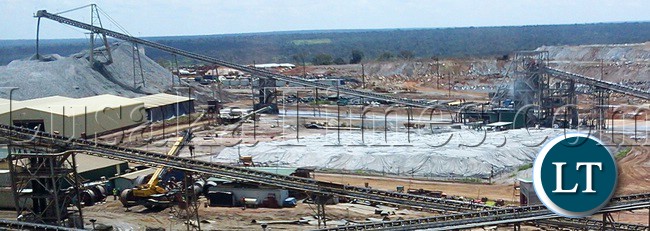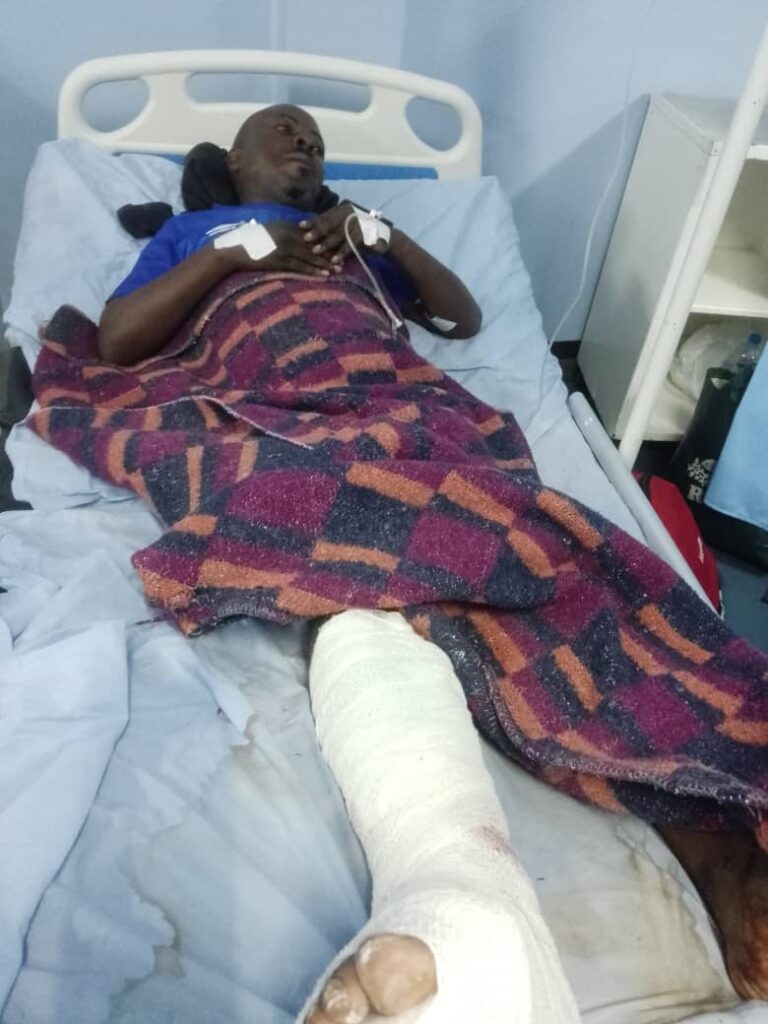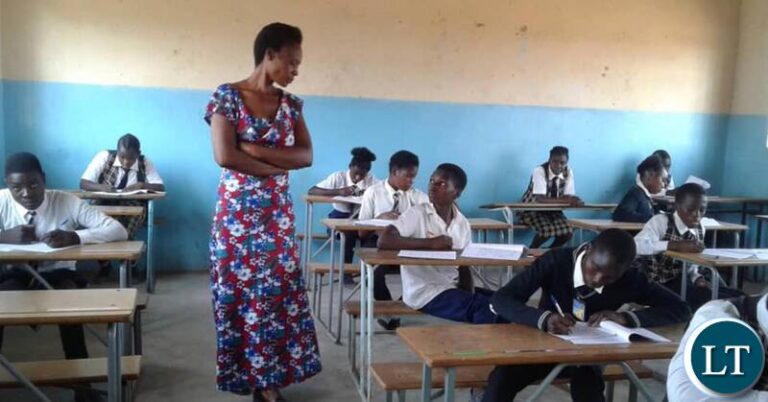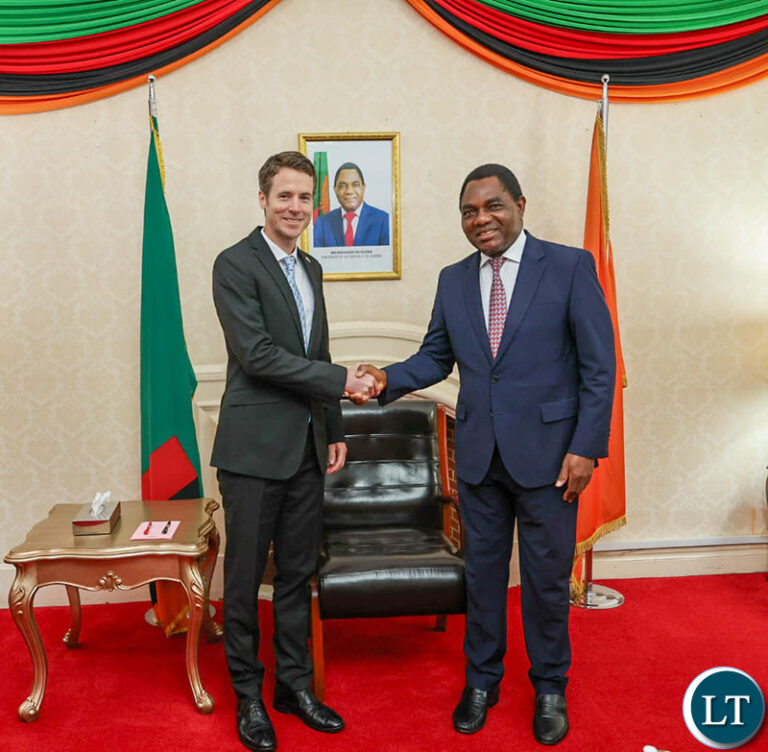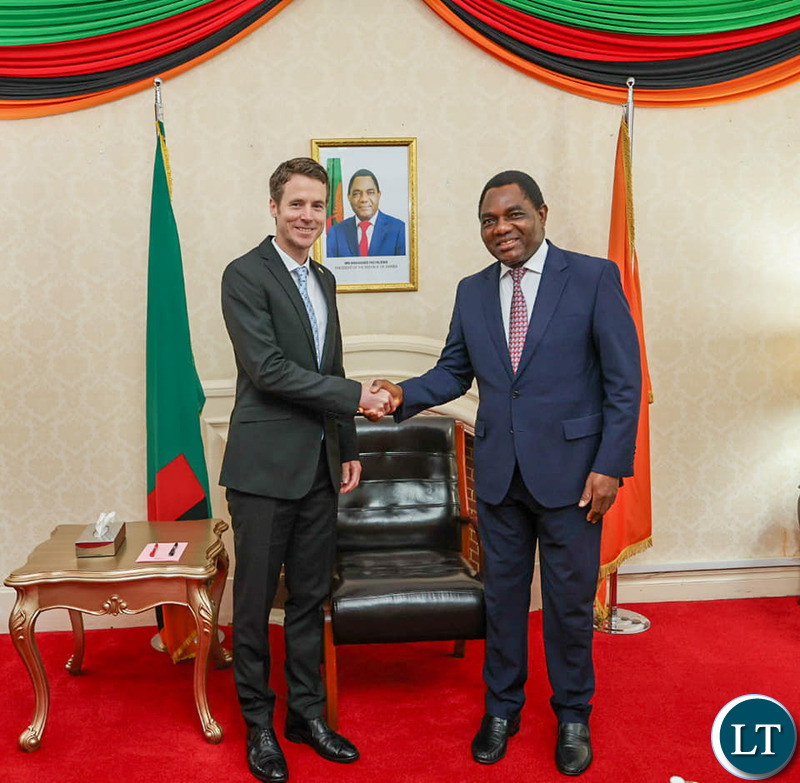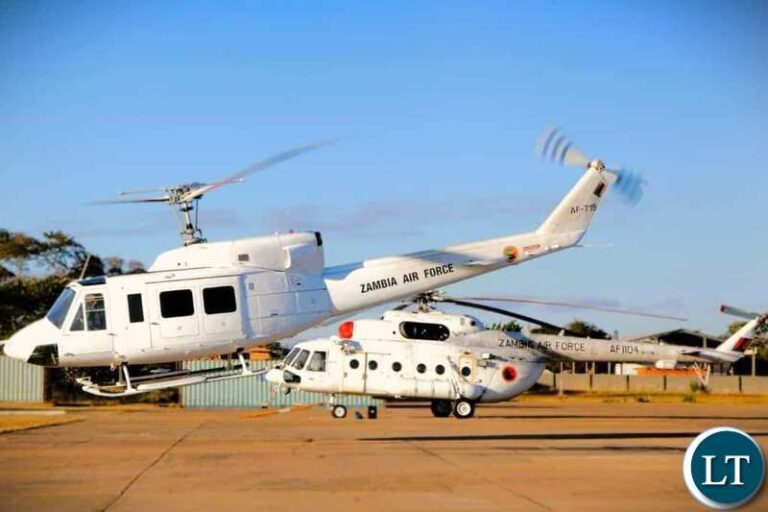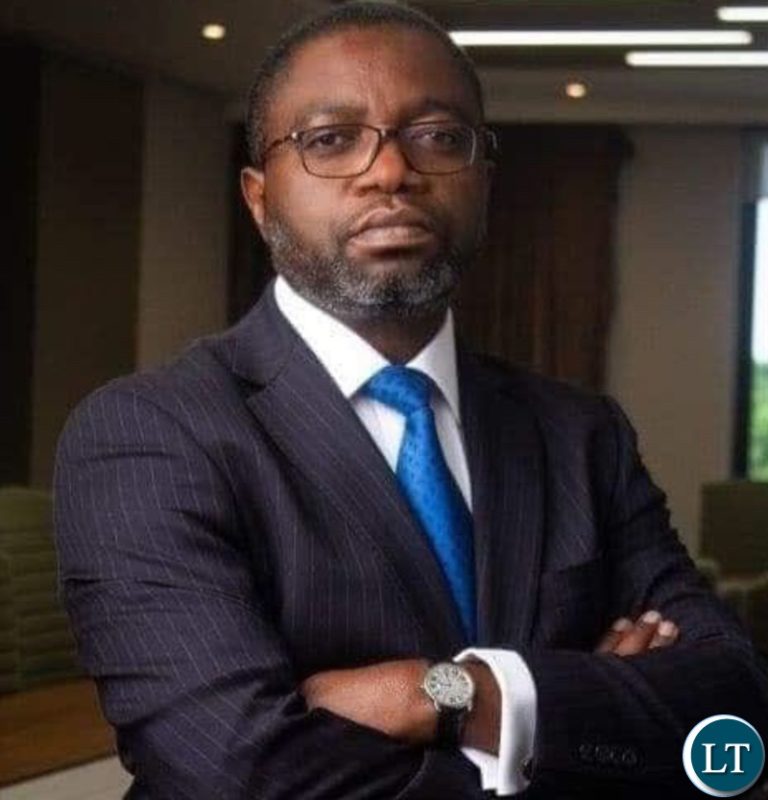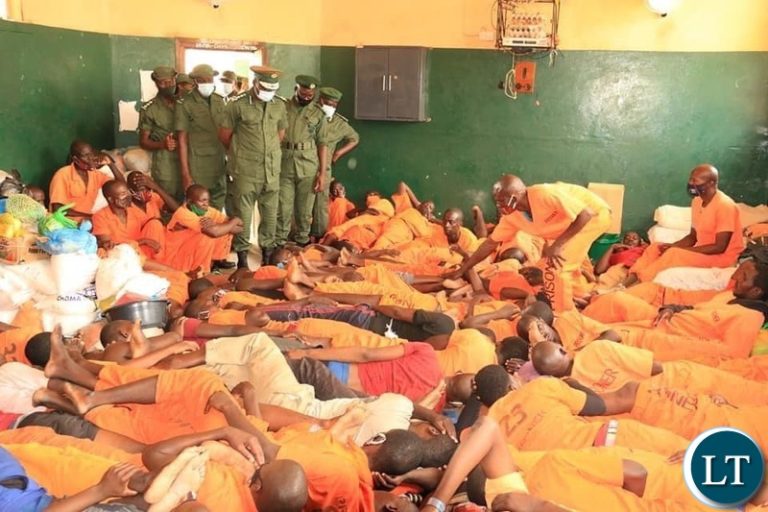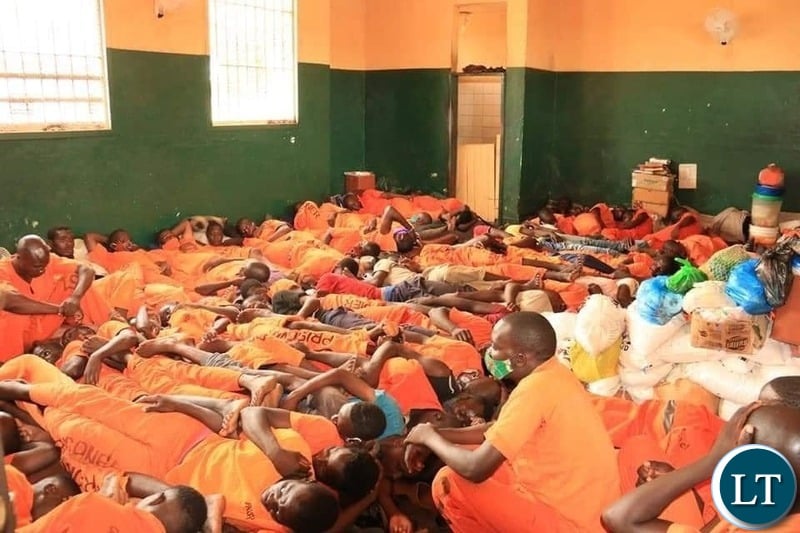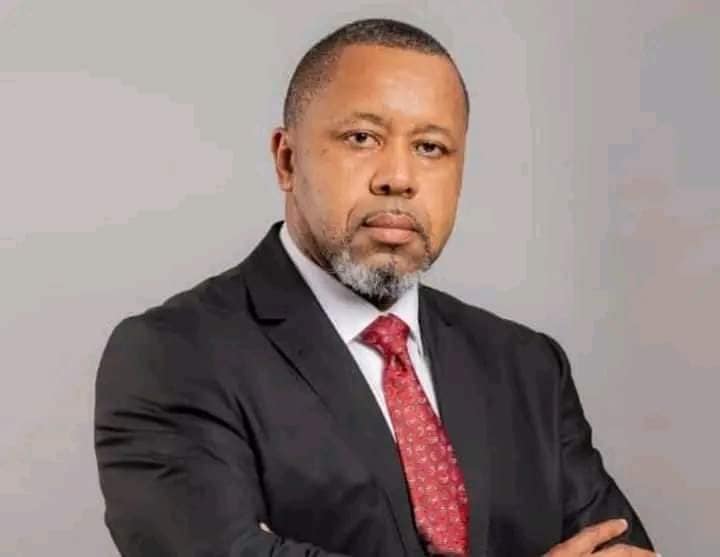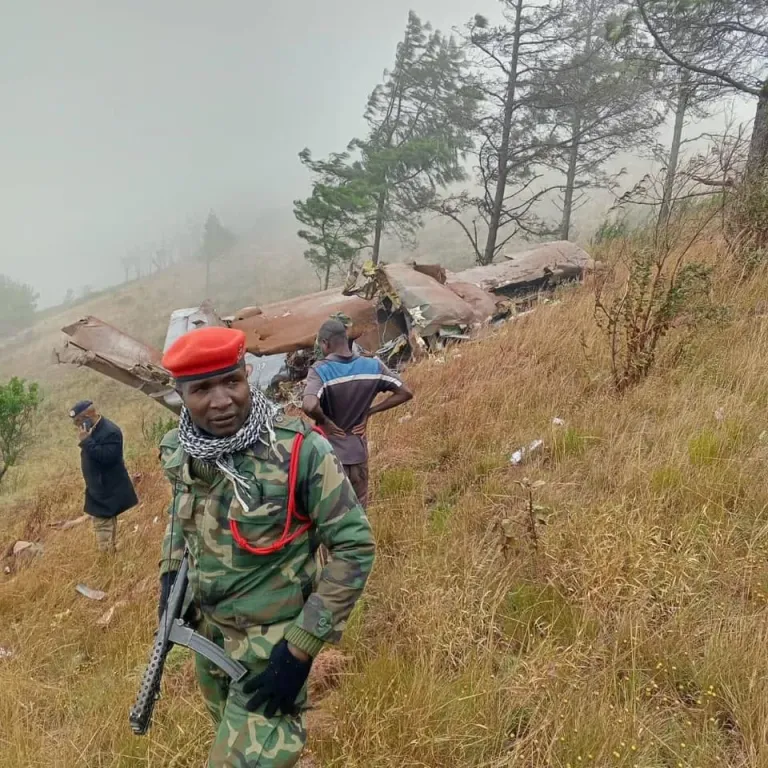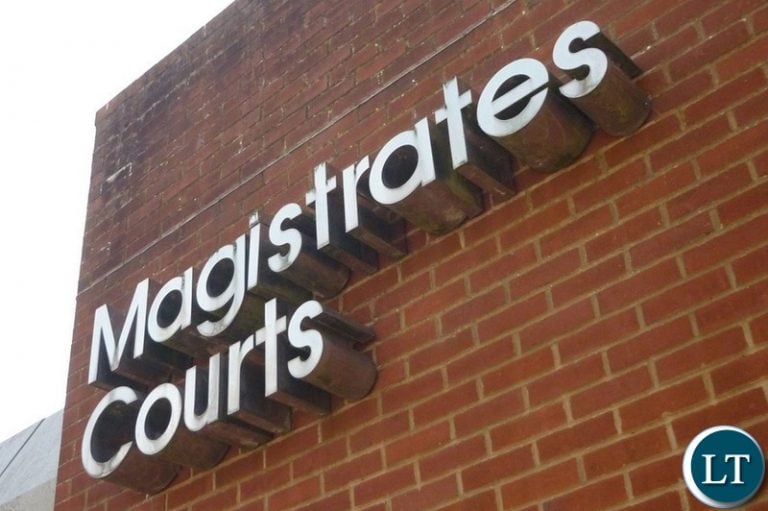By Sishuwa Sishuwa
“Sometimes, democracy dies with a bang. But more often, democracies die slowly. In plain sight, at the hands of elected officials. Through the gradual erosion of political norms and institutions”, wrote Steven Levitsky and Daniel Ziblatt in their book How Democracies Die. Elected with a popular mandate in 2021, Zambia’s Hakainde Hichilema is steadily eroding the country’s democracy by weakening critical institutions — the judiciary, police, parliament, electoral commission, and the civil service — to ensure he remains in power
When Zambia experienced democratic backsliding between 2011 and 2021, the deliberate use of legal mechanisms to weaken opposition parties played a central role. Lawfare, as this strategy is popularly known, has been a constant theme of Zambian politics in the era of multiparty democracy. This use of the law by the executive to achieve partisan goals has historically been aided by structural conditions such as a poorly institutionalised party system and recurrent disregard for the constitution and other laws by state actors. The defeat of President Edgar Lungu and his Patriotic Front (PF) in the August 2021 election raised prospects for a stronger legal foundation that would address the conditions that enabled the previous government to engage in legal autocracy. Nearly three years after the election of President Hakainde Hichilema and his United Party for National Development (UPND), the situation has hardly changed. Like his predecessors, Hichilema, faced with the prospects of defeat in August 2026 owing to a faltering economy and a country deeply divided on ethnic-regional lines by his actions, has employed lawfare to weaken his political opponents and secure re-election. The President has devised specific strategies for this latest wave of legal autocratisation using five key institutions: the judiciary, police, parliament, electoral commission, and the civil service.
The judiciary
The strategic use of Zambia’s courts to win political competition has four elements to it. The first is electoral exclusion. The leading target here is former president Edgar Lungu, who, having initially retired from politics in August 2021, made a political comeback in October last year, seeking to capitalise on growing dissatisfaction with his successor. Several days later, a ruling party activist petitioned the Constitutional Court, seeking a declaration that Lungu is not eligible to stand in any future election because of the constitutional two-term limit. The same court has ruled on three previous occasions, including just before the 2021 election when I sued him, that Lungu is eligible because his first term of office, which lasted for eighteen months after he took over following the death of the previous elected president, did not count as a full term.
Hichilema had expected Lungu’s comeback long before it happened. He appointed four new judges to the same court in February last year, beefing up the number to 11. Soon after, in September 2023, the Minister of Justice promised to find a petitioner who would move the court to revisit the previous pro-Lungu rulings which he said had been secured using ‘the arrogance of numbers’. The judges he has appointed are the ones the President is counting on to deliver a favourable verdict that would exclude Lungu from the 2026 election. The matter remains before the Concourt for determination.
Hichilema has also targeted nearly all other opposition leaders for electoral exclusion using the courts. These include Fred M’membe of the Socialist Party, Edith Nawakwi of the Forum for Democracy and Development, and Sean Tembo of the Patriots for Economic Progress. Although their parties have neither parliamentary representation nor a clear power base, Hichilema fears that any of these leaders may benefit from both the support of an excluded Lungu, who still commands a significant following, and the growing revulsion against his own leadership. In anticipation of this prospect, the government has, over the last three years, arrested M’membe, Tembo, Nawakwi, and other opposition leaders on a truckload of politically motivated charges such as libel, espionage, hate speech, and ‘acts intended to cause grievous bodily harm’.
Zambia’s constitution provides that “A person is disqualified from being nominated as a candidate for election as President if that person is serving a sentence of imprisonment”. Through the trumped-up charges, Hichilema hopes to find a pliant judge who would convict and send his political rivals to prison before the next election. Once this is done, the next stage would involve exerting pressure on the courts to delay the determination of the likely appeal cases that would follow the convictions. Failure by the opposition to overturn their sentences before the nomination for the 2026 election would then empower the electoral commission – a body led by ruling party supporters – to exclude the candidacy of M’membe, Nawakwi or Tembo on the argument that they are ‘serving a sentence of imprisonment’ and are merely on appeal.
The second element of the strategic use of the courts to eliminate political competition involves the capture of the main opposition party, the PF, using members of parliament (MPs) aligned with the ruling party. Last year, a PF MP Miles Sampa declared himself the party’s president after a hastily arranged and heavily policed sham meeting. Emboldened by support from Hichilema, Sampa then moved to expel nine PF MPs for alleged gross indiscipline and insubordination. The party’s substantive leaders moved to challenge the legality of Sampa’s convention while the affected MPs contested their expulsion in court. A Hichilema-appointed High Court judge, perhaps afraid that the bogus nature of the meeting that installed Sampa as PF leader would be exposed if the matter proceeded to trial, dismissed the case on a technicality even before it was heard. Sources in the judiciary disclosed that another Hichilema-appointed judge is now set to dismiss, on 27 June and using a preliminary issue, the other case brought against Sampa by the expelled MPs.
Combined, these court decisions would then enable the Speaker of the National Assembly, another official with close ties to the ruling party, to declare the MPs’ seats vacant and trigger by-elections. To increase the ruling party’s chances of scooping the seats, the electoral body will likely reject the nominations of aspiring candidates from the PF, unless they are from Sampa’s faction, which lacks legitimacy. Pitted against independents or poorly funded candidates from smaller opposition parties, the UPND will likely win. Through these legal manoeuvres, the judiciary – in a remarkable parallel to how Emmerson Mnangagwa and his ruling ZANU-PF have used proxies to dismantle the main opposition Citizens Coalition for Change in neighbouring Zimbabwe – would have effectively enabled Hichilema to take decisive control of Zambia’s main opposition party by indirectly installing a pliant leadership on the PF. After winning the seats, his party would command the two-third majority needed in parliament to make changes to the constitution such as making it easier for the president to gain re-election, extend presidential terms, or lift the immunity of former president Lungu.
The third element through which Hichilema has sought to emasculate political opponents using the courts is through the introduction of a new division of the High Court designed to hear cases of corruption. The Economic and Financial Crimes Court was created through a statutory instrument in January 2022. Two years later, in January 2024, the government issued a supplementary instrument that requires the court to hear and determine a matter before it ‘within five months from the date on which plea is taken’. Although the law empowers Chief Justice Mumba Malila to establish a court through a statutory instrument, the partisan political motivations behind the creation of the Economic and Financial Crimes Court were exposed by Hichilema who announced its formation way ahead of Malila. The President was also the one who first announced the five-month duration of proceedings three days before the Chief Justice did, indicating that the judiciary was taking instructions from the executive, itself an unconstitutional action. Moreover, the requirement for judges to dispose of cases within a limited timeframe only applies to the Economic and Financial Crimes Court, not any other, including other branches of the High Court where cases take years to be decided.
As one High Court judge told me, “The executive needs to prioritise the real cause of the problem of delayed judgements. What is needed is more judges, not more courts. Completing matters within a certain period is dependent on several variables. First, the delays are not deliberate. We are overstretched, as Zambia only has 100 judges at the level of High Court and above, servicing the whole country. Second, the case load is unmanageable. For instance, in 2023, in the general division of the Lusaka High Court alone, 2400 cases were filed. There are only 12 judges in the division, which translates into 200 cases per judge per year. Dictating the period within which these judges must conclude the cases risks undermining the delivery of justice”. Such concerns, though valid, are unlikely to bother the President. For Hichilema, the creation of this court and the dictation of the time within which cases must be decided allows him to present those convicted, however chaotically, as evidence of the success of his fight against corruption.
Given that the President has ignored reports of corruption among his own high-profile officials, those appearing before the court are generally former administrators under the PF. Convicting these bolsters his constant claims that ex-PF leaders should never again be entrusted with power because they ran a corrupt regime. The other motivation for Hichilema is that, once convicted, the sentenced would be constitutionally barred from seeking election to parliament or lose their parliamentary seat in cases of incumbent MPs. This is because their appeal cases, lacking a timeline within which they must be disposed of, are likely to drag on until after the relevant election. Having been in the doldrums of opposition politics for over two decades, Hichilema and the UPND are progressively showing that they will go to any length – including manipulating the rules and norms of a democratic political game, illegitimately excluding rival candidates from the ballots, and abusing incumbency advantage – to secure electoral victory and retain power.
If the first three elements of this strategic weaponisation of the courts to defeat political rivals are meant to cover the run-up to the 2026 election, the final element is designed to address any post-electoral disputes. Crucial here is the Constitutional Court, which has the final say on all matters relating to the interpretation of Zambia’s constitution, including the election of the President. For instance, in the event that an election petition is filed against the President-Elect after elections, the ConCourt has the legal mandate to hear the matter within 14 days of its filing and can dismiss the petition or call for a fresh poll within 30 days. The decision of the ConCourt on any post-election case brought before it is final. In anticipation of a petition against his possible re-election, Hichilema has moved to reconstitute the court in several ways.
First, the President added four new judges to the court in February 2023 to join the hitherto existing seven who were all appointed by his predecessor. Second, of those Hichilema found, he promoted to the position of president of the ConCourt the only remaining judge who had ruled in his favour when he petitioned the re-election of Lungu after the 2016 election. At the time, Hichilema had not only praised this judge but also accused the other three judges who threw out his petition of ‘being corrupt and under President Edgar Lungu’s control’. Third, Hichilema promoted one of the new judges he appointed last year – a long-time friend – to the position of deputy president of the ConCourt. In addition to presiding over the court in the absence of the president, the deputy is also the one who determines the allocation of cases and the composition of the panel that hears cases. For instance, the full bench of the Constitutional Court is constituted by an uneven number of not less than five judges. This means that to declare Lungu ineligible to stand in another election or dismiss any post-election petition brought against Hichilema, the deputy president is only required to constitute a panel consisting of at least three of Hichilema’s appointees and two others. It is reasonable to assume that Hichilema strategically placed his friend in this position as a way of ‘rigging’ case outcomes from the beginning.
The police
The strategic use of the Zambia Police Service to undermine political competition has three elements to it. The first is the suppression of the right to peaceful public assembly of opposition parties. To hold public rallies, political parties are required by the Public Order Act (POA), a colonial-era legislation that was used to police African nationalists, to ‘give police at least seven days’ notice’, specifying the date, place, and duration for the assembly. If the police indicate an inability to supervise the event for any reason, the POA allows the state institution to inform the convenors and propose an alternative date and time. Violations of this law attract a six-year prison sentence. The POA insulates members of the executive from its requirements, stating that the notification of any planned rallies ‘shall not apply to any public meeting convened by or at the request of and intended to be addressed by the President, the Vice-President or any Minister.’ Since his election, Hichilema has exploited this legal tool to prevent his political opponents from exercising the right to peaceful assembly, even when he continues to conduct political meetings.
Over the last three years, the police have blocked all public rallies called by opposition parties outside of by-elections, always citing unspecified security concerns or inadequate manpower. Yet whenever the opposition have threatened to proceed with their rallies, the government has dispatched hundreds of police officers to the designated venues to quash the meetings. The Inspector General of Police, Graphel Musamba, recently explained that ‘we don’t allow opposition rallies because the other side (i.e., the ruling party) is always ready to attack them (i.e., the opposition)’. This is a damning and undeniable evidence of political suppression. As well as dragging his feet in relation to amending the POA as he had promised in opposition, Hichilema has ignored repeated calls from civil society and the opposition for him to dismiss the police chief. Instead, the President has publicly praised the errant official as doing a great job and regretted not hiring him earlier.
By using the police to stop the opposition from campaigning, Hichilema is wrongfooting his critics by claiming that the police, not him, are merely enforcing the existing law. Alongside the deliberate delays by the executive to amend the POA, the reluctance by the judiciary to declare this 1955 law as unconstitutional, whenever they have been presented with an opportunity to do so, sustains the status quo of legal autocracy. Stopping the opposition from mobilising voters also prevents the raising of political temperature expressed through big-sized rallies that have historically served as a barometer of the public’s desire for change. Large-scale rallies of opposition parties show an incumbent president’s declining political support and serve as a source of courage for elites in formal institutions like the judiciary to do the right thing. For instance, ahead of Zambia’s 1991, 2011, and 2021 elections, all of which resulted in the defeat of the sitting president and were preceded by well-attended opposition rallies, courts that had all along shown timidity and subservience to the executive suddenly sprang to life and made several decisions against the executive.
The second element of the strategic use of the police to undermine political competition is the suppression of the right to protest. The restrictions on public assemblies have been extended to peaceful demonstrations called by civic groups, however informally constituted, against IMF-instigated government policies. A bit of context is important here. Since his ascension to power, Hichilema has presided over a faltering economy beset by declining revenue from the crucial mining industry due to large tax incentives to foreign multinationals, crippling power cuts that have badly affected production, a steep depreciation of the Kwacha against major convertible currencies, a sharp increase in the rate of inflation that climbed to a 26-month high in April this year, and a budget deficit averaging 8% in both 2022 and 2023. As a result of this context and the reckless exports of maize and mealie meal (the national staple), fuel and food costs have risen dramatically, worsening the cost-of-living crisis. “I have never in my life seen the kind of hunger there is in homes right now. As I wrote that line, tears came to my eyes. God, people are hungry!”, wept Laura Miti, a 53-year-old boisterous Hichilema supporter who had only months earlier declared him “the best President of Zambia for this moment”.
Miti blamed the current economic challenges on adverse climatic conditions like poor rainfall, an excuse that Hichilema himself dismissed when in opposition: “True leaders attend to problems and not blame anyone or climate change. When you have a challenge, the best way is to attend to it because external factors beyond human control have existed for ages and will remain with us for more years to come. Wonder how people in the Arab world which is mostly desert manage to supply electricity 365 days a year when not a single drop of rainfall has ever dropped? The difference is leadership quality and VISION”, wrote Hichilema in December 2019 when then President Lungu was grappling with similar difficulties. His failure to demonstrate the ‘leadership quality and VISION’ he had demanded from his predecessor has fed growing levels of dissatisfaction, especially in towns and cities, but the police, using the same excuse provided to opposition parties, have vetoed all peaceful protests called against the government’s failure to address the escalating cost-of-living crisis. In practice, therefore, no demonstrations against the state are sanctioned. The result is not just the suppression of the real political temperature but also the invention of an alternative social reality by Hichilema’s social media team, one that paints a rosy picture of Zambia under his leadership to the outside world.
The final element is the use of the police to arrest key opposition leaders on spurious charges. Over the last 48 months alone, Hichilema’s administration has arrested at least six leaders of opposition parties – that is three times the number under Lungu, who ruled for seven years. This total does not include senior national leaders within parties, some of whom have been languishing in detention for over five months or were incarcerated for over year before being released on a nolle prosequi. The modus operandi of these arrests is generally the same: arrest the opposition leaders, keep them in detention for a period longer than authorised by law, and either release them on police bond without ever taking them to court or drop the charges after court appearance. The objective is fourfold: inflicting pain or punishment on political rivals, keeping the opposition busy in the courts, distracting them from political work, and stretching their financial resources through costly litigation.
Parliament
The strategic use of Zambia’s unicameral parliament to weaken the opposition has been enabled by two structural weaknesses that enhance executive power. The first is a constitutional provision that allows the President (and political parties holding seats in the National Assembly) to nominate a person for election as Speaker of the National Assembly. Successive presidents have used this opportunity, alongside the failure of opposition parties to win majority seats in parliament, to capture the key position of Speaker by recommending their supporters for election. Ordinarily, the Speaker is supposed to be elected by all members of parliament, but the ruling party majority in parliament has instead allowed Hichilema to go over their heads and effectively install a UPND-aligned activist, Nellie Mutti, who previously served as one of his personal lawyers and represented the party in political debates, and who has no previous parliamentary experience.
“Speaker Mutti must divorce the UPND and marry the law”, Zambia’s independent News Diggers newspaper wrote recently after Mutti repeatedly made openly partisan calls which, at best, fall within the purview of the executive. This included using her presiding position to defend Hichilema’s decision to scrap the Ministry of Gender before she made a U-turn after women’s organisations disagreed with her. When opposition MPs asked the vice-president to explain Hichilema’s five-month delay in appointing a substantive minister of foreign affairs, Mutti answered on behalf of the executive: “I wonder why you ask that question because this government is functioning. He will appoint as and when he feels like.”
After the pro-Hichilema Sampa recently imposed himself as PF leader, Mutti took it upon herself to appoint a new leader of the opposition from his faction over the heads of the actual majority opposition party in parliament, despite the constitutional requirement that the leader of the opposition must be elected by a vote of the main opposition party. This case is presently before the Constitutional Court. Protests against Mutti’s partisan leadership from independent and opposition MPs have resulted in her slapping lengthy suspensions from Parliament on the affected lawmakers.
The second structural weakness that empowers the ruling party and executive to undermine legislative scrutiny, hence horizontal accountability, is the funding model of political parties coupled with the lack of internal party democracy. In Zambia, political parties are almost exclusively financed by the leader who then exercises greater control over its affairs. In the case of the UPND, Hichilema has been its main sponsor since 2006, a position that has given him unrivalled power, including when it comes to selecting candidates for parliamentary elections. The constitution provides that political parties must be internally democratic and hold primary elections. However, the subsidiary law that should spell out the enforcement of this provision is yet to be enacted, and party leaders ultimately decide candidate selection. (In 2017, the PF took to parliament a Bill that provides for the registration, regulation, and financing of political parties, but withdrew it for further consultations before they were voted out; Hichilema’s administration has simply shelved it.)
As a senior UPND leader revealed, “The truth is that all of us who stood as MPs in 2021 were chosen by HH. There were many people who applied to stand on UPND ticket, but he ultimately chose us and even financed our election campaigns from his pockets, so we must be loyal to him”. The result is a parliament with a supine character consisting of majority MPs who were picked by a person who is now the leader of the executive and responsible for appointing judges, subject to the approval of the same parliament largely constituted by him. In effect, a poorly institutionalised party system has allowed Hichilema to corrupt the system and recreate himself in the other two state institutions that simply kowtow to executive manoeuvres, effectively making a mockery of the principle of separation of powers.
The electoral commission
The leadership of the Electoral Commission of Zambia (ECZ) consists of five commissioners appointed by the President including the chairperson and the deputy who serve on a seven-year contract, renewable once. After assuming office, Hichilema wrote to the ECZ chairperson and deputy chairperson, both of whom were appointed by Lungu in 2015 and had managed the historic 2021 election, that he would not be renewing their contracts that were due to expire in July 2022. The President then appointed Mwangala Zaloumis, his former personal lawyer, and Mcdonald Chipenzi, a supporter of the ruling party, to replace them as commissioners. Hichilema, overlooking the experienced three commissioners who all had been appointed by his predecessor between 2018 and 2020, immediately promoted Zaloumis to the position of chairperson. There are four important consequences of the changed leadership and composition of the commission.
One is that this is the first time that the commission is led by a person who has never held judicial office. Since its creation in 1996, the ECZ has benefited from having a series of former high court or supreme court judges who commanded the respect of all political players and enhanced its credibility. Zaloumis’ nomination was opposed by the opposition in parliament but went through after UPND MPs supported it. The other is that this is the first time in its history that the ECZ has commissioners with known ties to the sitting president or party in power. While Zaloumis was Hichilema’s lawyer, Chipenzi had reportedly sought nomination to parliament on the UPND ticket but lost in the primaries. Thanks in part to this compromised leadership, there are currently many cases before the court of several opposition party by-election candidates who have had their nominations rejected by the Commission, apparently using powers not given to the body in law.
Another implication, mainly for the chairperson and the deputy, is that it pays to be unprofessional. The previous leadership appointed by Lungu had acted with professionalism and neutrality in the last general election. By not renewing their contracts, Hichilema effectively dismissed them. This is a lesson for current and future leaders to be partisan.
The final consequence is the lack of ethnic-regional diversity – a constitutional requirement in public appointments – in the new leadership of ECZ. Whereas previous presidents attempted to reflect the ethnic diversity of the country when making appointments to the commission, Hichilema’s two picks come from Southern and Western provinces. This means that four of the current five commissioners hail from a region that typically votes for Hichilema. Given the increasingly ethnic-regional polarisation in Zambia today, a narrow election victory for Hichilema in 2026, however genuine, may be interpreted as fixed by a commission whose composition is unduly dominated by individuals from one half of the country.
In dispatching his supporters to the electoral body, Hichilema has exploited the law to his political benefit, risking the standing of an institution whose credibility depends on the perceived impartiality of its commissioners. If a sitting president is able to both rig an election and control the Constitutional Court, it is hard to see how he or she can ever be voted out of office. In the event of a disputed election and given the self-serving changes Hichilema has made to the judiciary, those dissatisfied with the outcome may, unlike in the past, choose to go to the streets, not the courts.
Civil Service
The strategic use of the civil service for political ends has found expression in two main ways. First, Hichilema has sought to use patronage to consolidate his ethnic-regional power base to give him constituencies he can win legitimately and provide cover for possible vote manipulation elsewhere. Patronage is to be found in the skewed distribution of appointments to public office, overly dominated by individuals from Southern, Northwestern, and Western provinces – one half of Zambia that has historically voted for Hichilema and the ruling party. Those from this region believe they have been historically marginalised by their counterparts from the Eastern and the Bemba-speaking provinces of Northern, Luapula and Muchinga. As was the case under Lungu, the binary between us and them has been sharply drawn under Hichilema, whose administration has, as of March 2024, sent home 414 civil servants who hail from the region that voted for the opposition.
The stark disparities in the ethnic-region distribution of civil service positions permeate nearly all government institutions. As well as heading the executive, parliament and the judiciary, Zambians from Hichilema’s region dominate the key ministries, the leadership positions of four of the five security services, the justice system, electoral commission, foreign service, the central bank, and most posts in the civil service and parastatal bodies. Hichilema – the first President from his region since independence in 1964 – does not see anything wrong with this, believing he is simply addressing historical imbalances. Yet he is, in fact, consolidating his ethnic-reginal support base. To stem the growing complaints of ethnic-regional favouritism, Hichilema recently announced that his cabinet has approved proposed changes to existing laws aimed at stiffening penalties for those alleging tribalism.
Second, Hichilema, like his predecessors, regularly deploys civil servants as part of the UPND campaign machinery. For instance, in many of the ward by-elections that have occurred under his watch, District Commissioners (DCs) have been a constant presence. Complaints raised against their conduct by opposition parties to the ECZ have been met with inaction. Appointed by the President, the DCs are officially civil servants tasked with improving service delivery in rural areas but, in reality, they exist to promote the interests of the ruling party across the country using government resources. They are also notoriously known for inducing opposition councillors, especially in areas where UPND has limited presence, to resign and join the governing party. Since they are employed by the President, these officials consider it their occupation to keep Hichilema in power to maintain their jobs. The more political they are, the safer their jobs. When they carry out political functions, they become untouchable by their supervisors who know they are agents of the Head of State. The government has also reconstituted the district and provincial leadership personnel in municipalities and educational institutions to pack them with civil servants who hail from Hichilema’s region seen as loyal to the ruling party. These are the officials who help administer the elections at local level and are set to play an important role in 2026.
Hichilema appears to have decided that to win re-election, he does not need to deliver on his campaign promises but can simply use the law to manipulate institutions to serve his partisan interests. At a recent press conference, Hichilema threatened to unleash the military on those complaining of ethnic-regional marginalisation, if the police failed to deal decisively with them. This provides the earliest indication of his willingness to declare a state of emergency if opposition to his leadership gathers momentum. The lure of authoritarian powers appears to be very hard to resist. Evidence is mounting that Hichilema, whose Western allies have maintained an incriminating silence amidst this well-orchestrated assault on human rights and democracy for fear of driving him into the arms of China, is no democrat. He is Edgar Lungu with a better PR.
